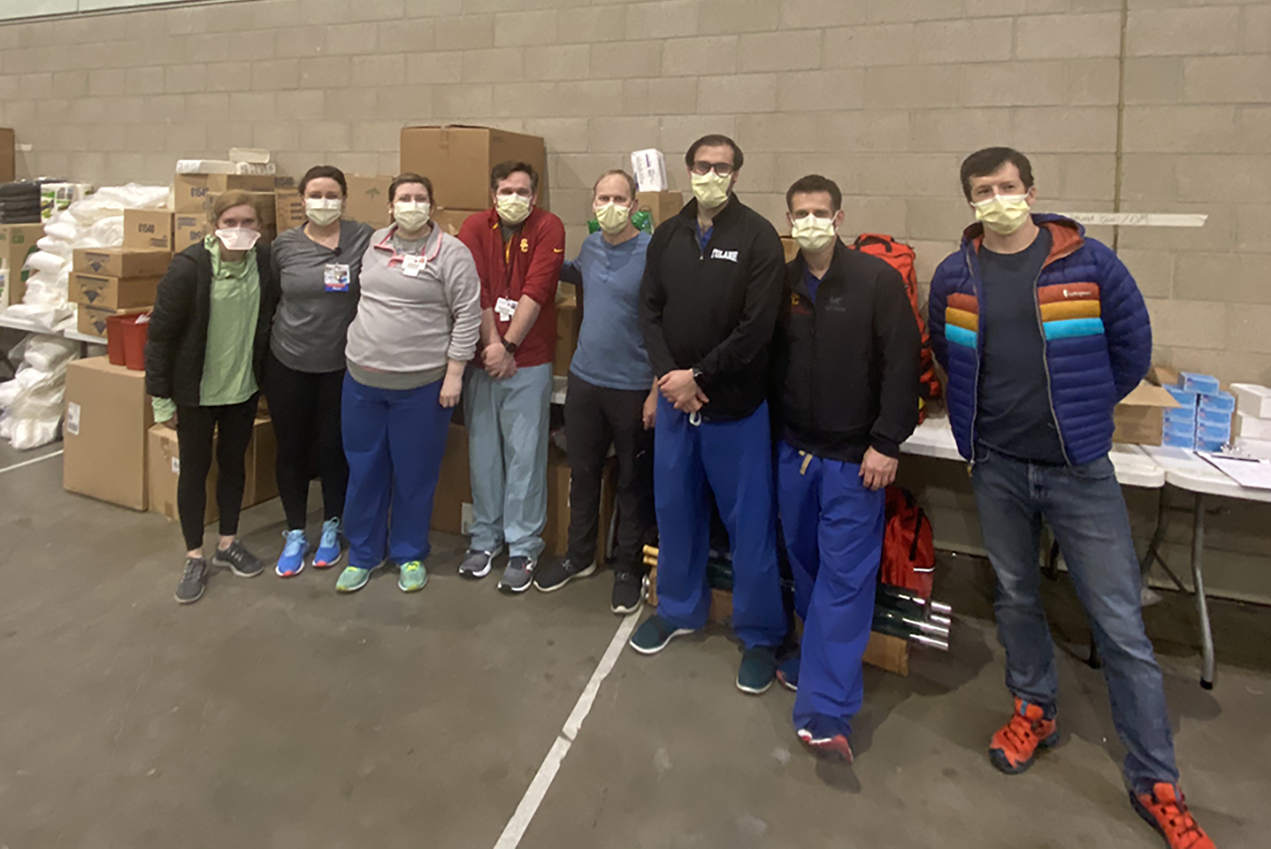This was not the spring the surgical residents at the Keck School of Medicine of USC expected. Instead of having plentiful opportunities to hone their craft, they have watched as elective procedures have rightly been halted in order to keep intensive care units free for a potential influx of COVID-19 patients. But they haven’t let that dampen their desire to help and to heal. In a move that inspired resident programs across the nation, every single surgical resident at USC volunteered to train to help support critical care teams.
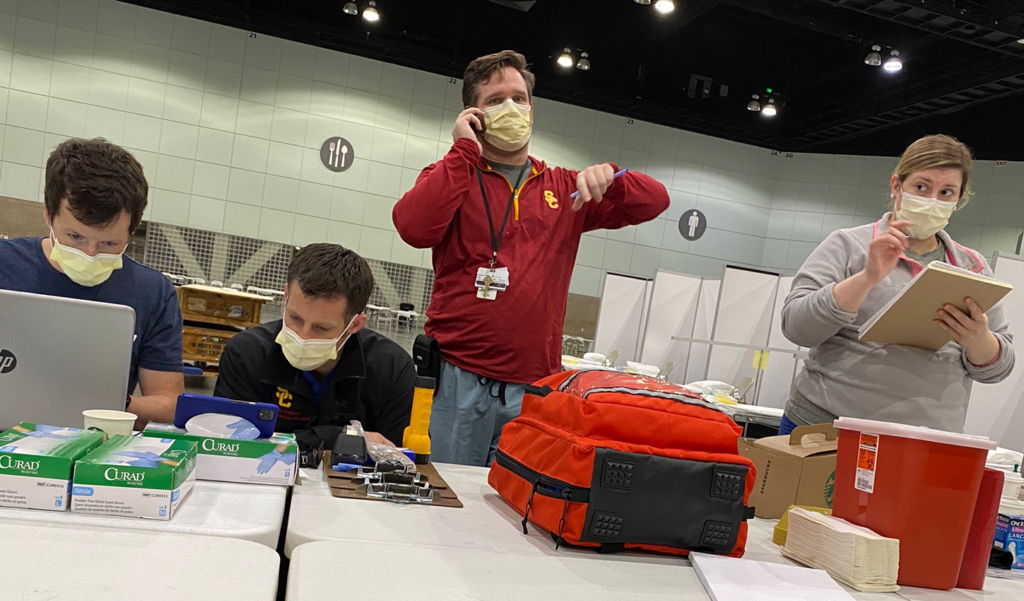
Now, several of the surgical residents have volunteered to go the extra mile again, this time in their off-hours.
The City and County governments of Los Angeles have collaborated with the State of California to set up an emergency relief site in case local hospitals become overburdened. The facility would take on non-COVID patients with milder issues so that acute care beds can remain open for patients with more severe illnesses.
“It’s an ever-changing situation. Right now, we don’t need it, but we don’t want to be caught unprepared,” explained Lydia Lam, MD, MS. A surgeon at Keck Medicine of USC, she has been helping to organize the overflow facility between her own trauma surgery shifts.
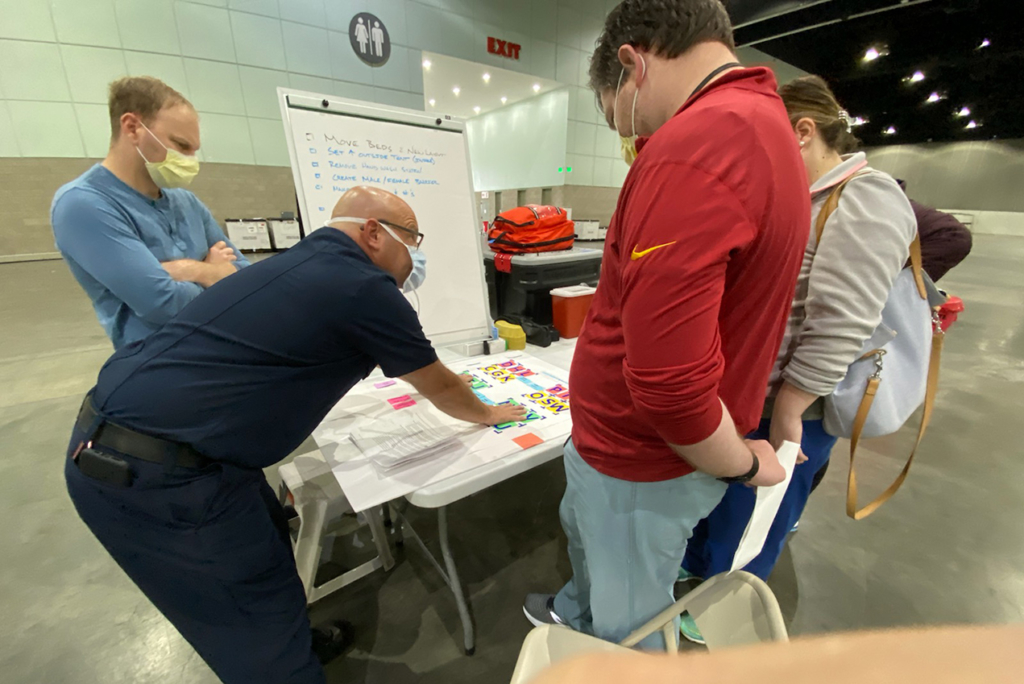
Over the past two weeks, firefighters, the LAPD and the National Guard have worked together to set up the facility. But there was a crucial task left: unboxing, sorting and inventorying the enormous load of supplies that came from the state. This task required both medical expertise and practical experience in setting up a medical workspace.
Lam put out the call and was happy to see several surgical residents and fellows volunteer to help. Others sent regrets that they were unavailable during clinical shifts. Among those who volunteered to help sort and distribute the supplies were: Christopher Foran, MD; Wes Barry, MD; Abby Zamora, MD; Molly Zamora, RN; Chaiss Matthews, MD; Kasim Mirza, MD; Natalie Nguyen, MD; Adam Golden, MD; Matt Strickland, MD; and Geoff Anderson, MD.
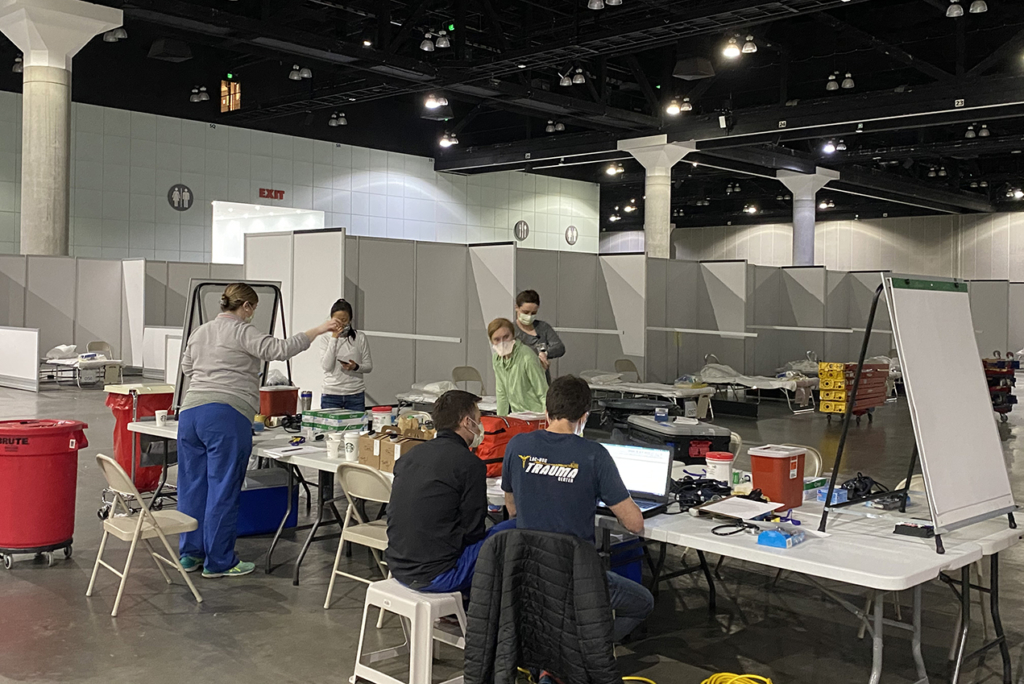
“This is not glamorous work,” Lam said. “They emptied boxes, they loaded supplies, they took inventory.”
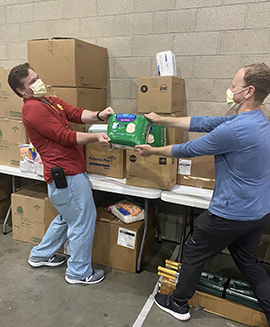
Foran, one of the residents who volunteered, didn’t mind going outside his expected work duties and training: “We have all been required to think and perform outside of the lane of surgery. This has humbled us and given us a more informed appreciation of our fellow health care providers, first responders, and support staff.”
Lam praised the team for stepping up. Foran confirmed that, while the day was tiring, it wasn’t a hardship assignment.
“We had a lot of laughs and a lot of pizza,” he said. “It was our pleasure to assist the LAFD, who has done the vast majority of the work needed to set up the facility.”
Though this work was far outside the usual training for a surgical resident, Lam asserted that it was a valuable part of their training as caregivers. “This is what true doctoring is about,” she said. “Healing people is not always about being the one who runs in and stops the bleeding. We’re working toward the greatest good, which is saving the most lives.”
— Lex Davis


